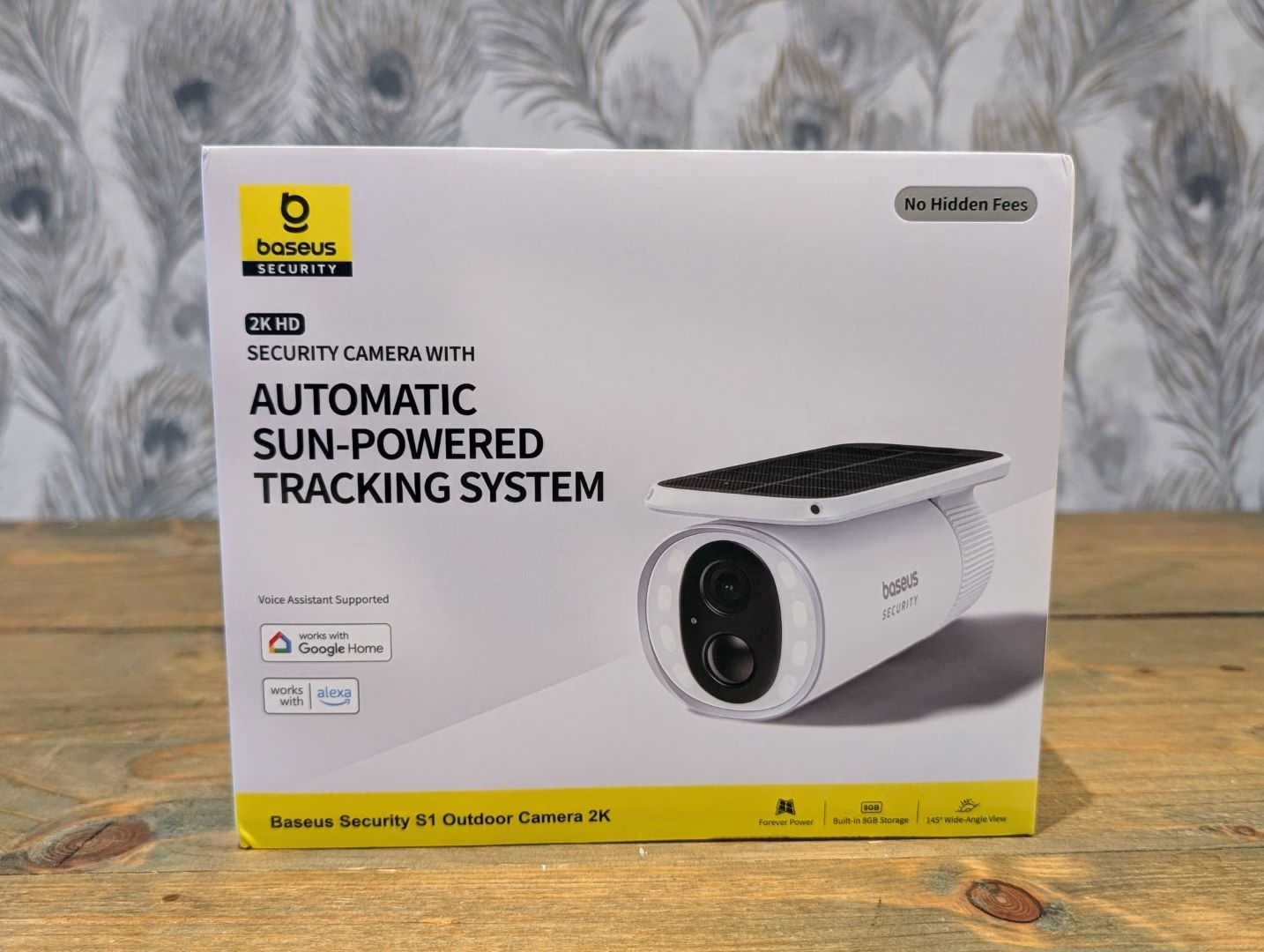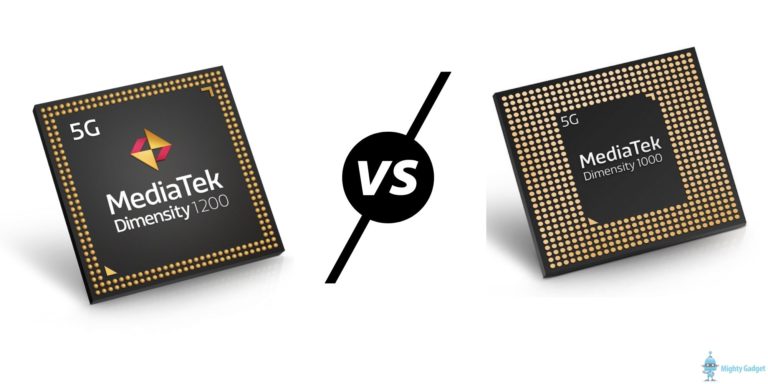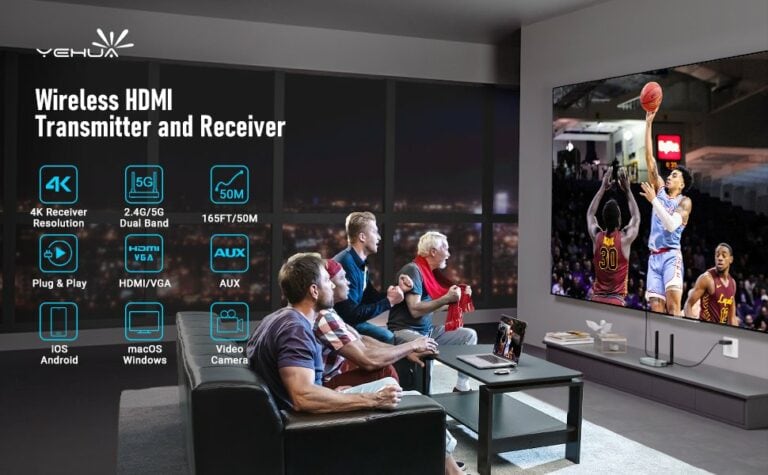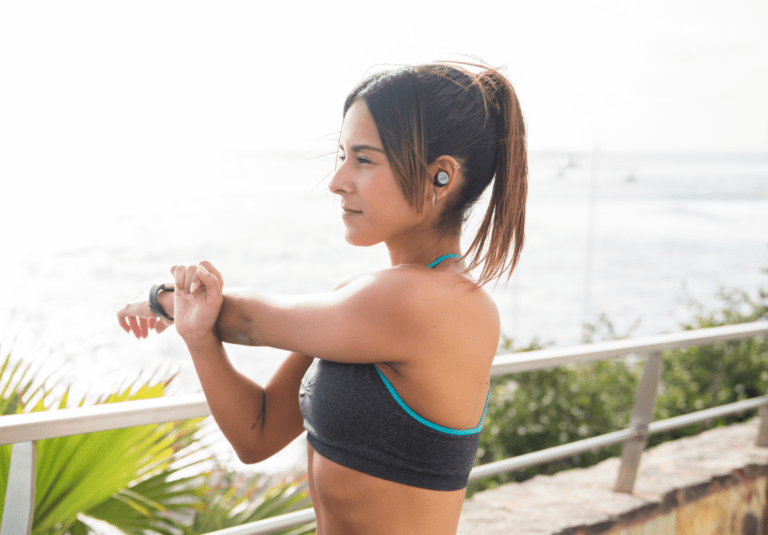Any links to online stores should be assumed to be affiliates. The company or PR agency provides all or most review samples. They have no control over my content, and I provide my honest opinion.
Baseus S1 Outdoor Security Camera Review
Summary
The Baseus S1 Outdoor Security Camera offers strong value for money, especially when discounted to around £60. Its standout feature is the motorised auto-tilt solar panel, which genuinely enhances battery life compared to fixed-panel alternatives. Video quality is solid during both day and night, aided by a 2K resolution and powerful spotlight for colour night vision. While audio performance and motion detection are decent, the lack of expandable storage and more advanced detection features (such as vehicle or package recognition) are limitations. Still, for a low-cost, subscription-free camera, the S1 is an excellent choice for basic home surveillance.
Overall
90%-
Overall - 90%90%
Pros
Excellent battery performance
No subscription fees
Good day and night footage
Solid weatherproofing
Affordable price
Cons
No expandable storage
Lacks advanced detection features
No 5 GHz Wi-Fi
Bulky design
The Baseus S1 Outdoor Security Camera is a curious surveillance camera that features an integrated solar panel, a design element I have seen on the EufyCam S3 Pro and AOSU C9C-4H SolarCam before. What makes this model unique is that the solar panel can rotate and track the sun. Baseus claims that this allows the camera to capture twice the amount of solar energy. I am a bit sceptical of this claim, but I guess it depends on the orientation of the camera and exposure to the sun in the first place.
Beyond that, this camera is on the affordable end of the spectrum, with discount prices being around £60.
It then also benefits from 8GB built-in local storage and is completely subscription-free, unlike brands like Arlo and Ring.
| Preview | Product | Rating | Price | |
|---|---|---|---|---|

| Baseus S1 Security Camera Outdoor Wireless with Auto Tilt... | Buy on Amazon |
Related Reviews
- Aqara Doorbell Camera Hub G410 Review
- Reolink Altas Review
- Aqara Camera Hub G5 Pro PoE Review
- Reolink Duo 3 WiFi Review
- EufyCam S3 Pro Review
- Imilab EC6 Dual 2K WiFi Plug-in Spotlight Camera Review
- Reolink CX810 Review
Specification
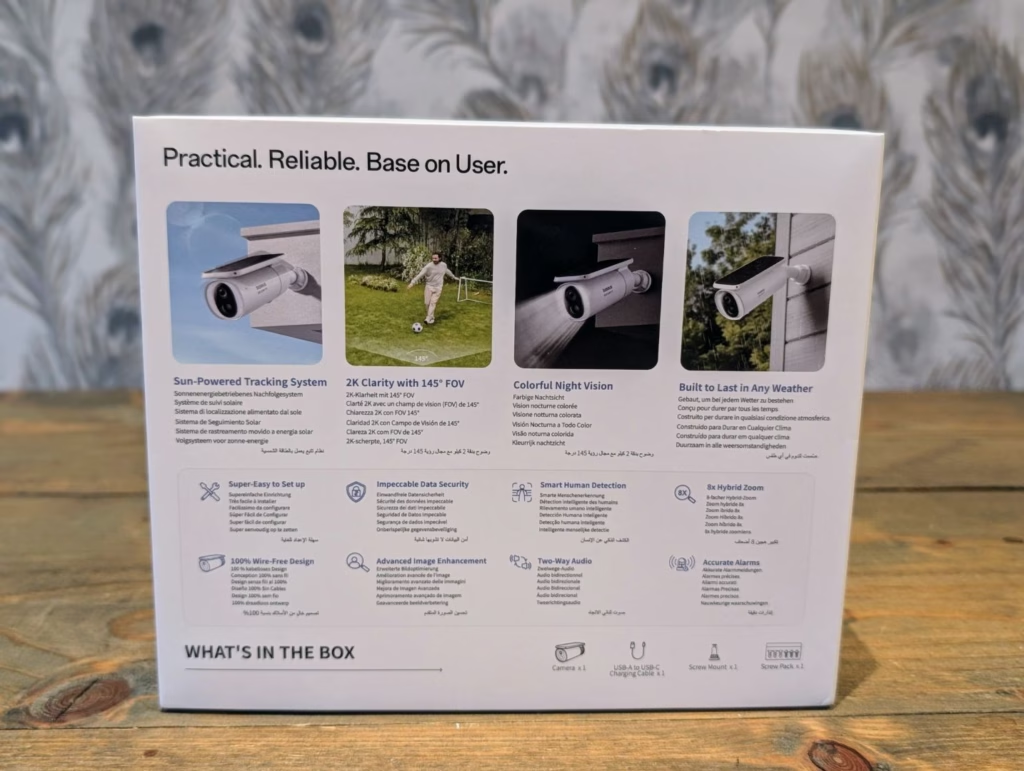
- Resolution: 2K (2304×1296)
- Lens: Single lens with 145-degree field of view
- Solar Panel: Motorised auto-tilt, up to 40 degrees horizontal tracking
- Video Storage: 8 GB internal memory (non-expandable)
- Battery: 10,400 mAh capacity, rechargeable via USB Type-C, topped up by solar
- Night Vision: Colour and infrared, supported by 400-lumen LED floodlight
- Weather Resistance: IP67 rated
- Operating Temperatures: -20°C to 50°C
- Audio: Two-way, with active noise cancellation
- Connectivity: 2.4 GHz Wi-Fi only
- Mounting: Adjustable ball mount with standard quarter-inch thread
- App Support: Android and iOS via Baseus Security App
Features
Auto-Tilt Solar Panel
The auto-tilt solar panel is the standout feature, adjusting itself to follow the sun throughout the day. Baseus claims this design doubles the energy harvested relative to a traditional fixed panel, massively reducing the need for manual recharging. Over several weeks during a typical British summer (with a mix of sunny and overcast days), the S1 maintained full battery, indicative of reliable solar performance. The auto-tilt function is motorised and operates quietly. Unlike fixed solar panels, which are often limited by their mounted angle and require optimal installation to perform well, the tracking mechanism here does provide a tangible benefit, particularly for installations where sunlight direction changes seasonally or is partially obstructed.
Video and Audio Capabilities
Video footage recorded at 2K offers noticeably improved sharpness over 1080p rivals. Daytime clarity is good, with sufficient detail to capture faces and vehicle number plates at moderate distances. The 145-degree field of view covers a wide area, suitable for most domestic installation points without missing crucial angles. Digital zoom is limited to eight times and, while handy for close inspection, does sacrifice image quality as expected with any digital zoom system.
At night, the S1 achieves clear images thanks to its combination of powerful white LEDs and infrared sensors. The colour night vision is enabled by the LEDs, which are bright enough to illuminate driveways and gardens up to around eight metres. For situations where discretion is required or bright lighting is undesirable, traditional infrared mode is available, yielding slightly less detail but better for privacy.
Audio quality is acceptable for home use. The two-way system is useful for interacting with delivery drivers or visitors, with both the microphone and speaker performing reliably unless affected by strong wind. Noise cancellation is present, though some background noise still filters through in exposed installations.
Local Storage and Privacy
The built-in 8 GB storage negates the need for a cloud subscription, storing up to 1.5 months of triggered video clips depending on activity levels. All clips are encrypted. However, there is no option to expand storage with a microSD card. This means in the event of a theft or destruction of the camera, footage is lost unless promptly downloaded to a mobile device. Those seeking offsite backup would need the S1 Pro model with a separate base station, but that is priced substantially higher.
Privacy controls are solid. The S1 conforms to recognised data security standards and gives full control over when and how video data is accessed, important for GDPR compliance and peace of mind. All video is retained locally and cannot be accessed by Baseus or third parties.
Weatherproofing and Build Quality
With an IP67 rating, the S1 camera is designed to withstand heavy rain, snow, and dust. The camera survived several storms and summer showers during extended outdoor testing. The unit feels robust, with a solid weight and high-quality seals on exposed points such as the USB charging port and the reset button. The matte white plastic finish does not attract undue attention and blends into most exterior wall finishes.
Motion Detection and App Settings
Motion detection is handled via a combination of standard PIR sensors and AI-based human detection. The dual approach is effective: the AI system reduces false positives from animals or foliage, while human detection sends rapid app notifications when genuine movement occurs. Motion settings can be finely tuned, including customisable sensitivity, activity zones to concentrate detection on problem areas, and ignore zones (e.g., for public footpaths or busy roads). During testing, the AI system performed well, missing few genuine events and largely filtering out irrelevant triggers.
The Baseus Security App is available for both Android and iOS, with an intuitive interface that simplifies live monitoring, customisation, and review of recordings. Live preview loads in roughly three seconds, depending mainly on signal strength. Key controls are accessible without navigating through multiple menus, and the app allows for simple activation of sirens, lights, and two-way audio. Timeline-based event review works smoothly, enabling quick identification of specific incidents.
Baseus S1 Pro vs S1 vs S1 Lite
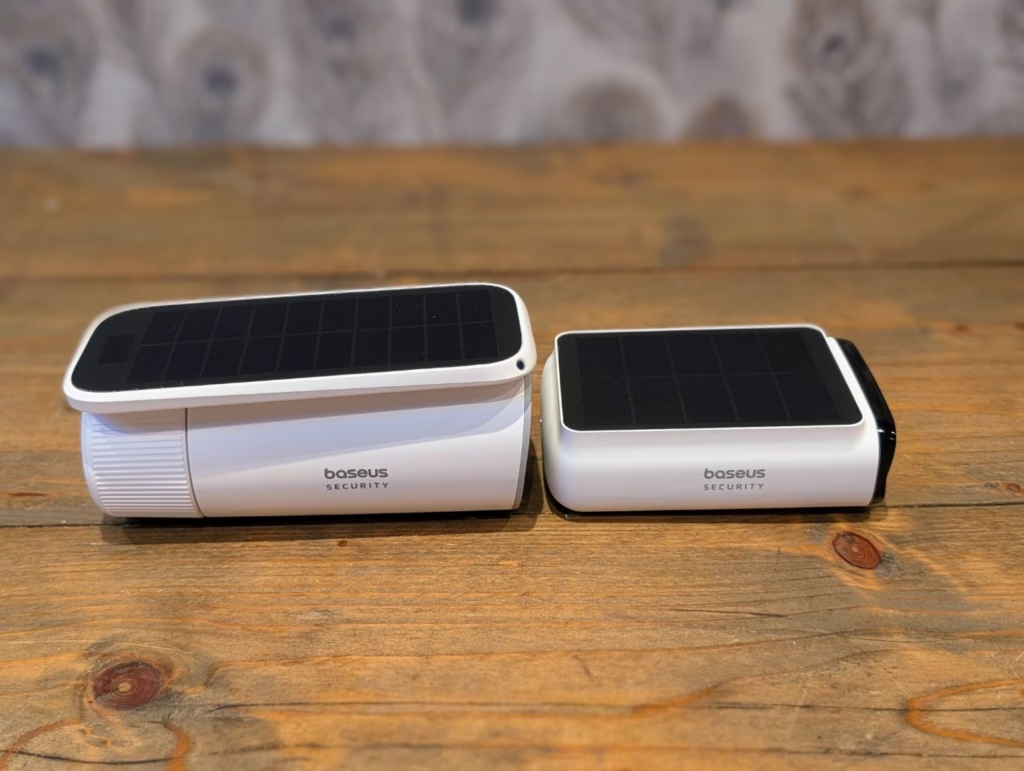
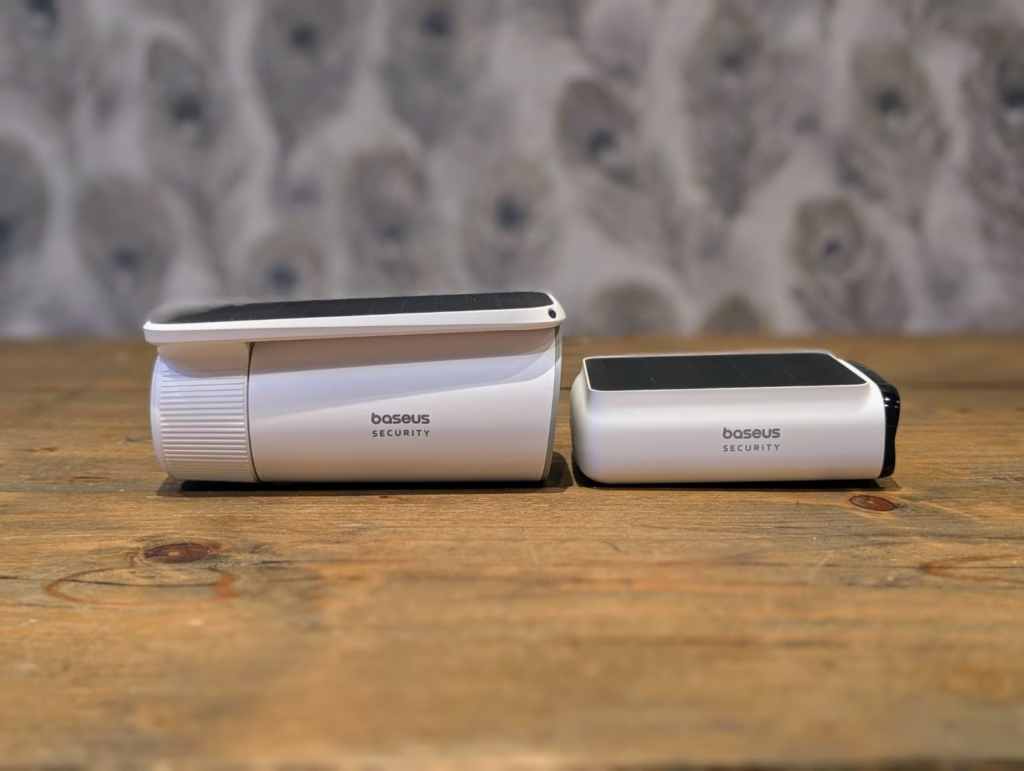
Baseus has expanded the range to cater to different needs and budgets:
- S1 Pro: Dual-camera kit with a base station, rotating auto-tilt solar panels, and dual-lens setup (3K wide angle and telephoto, 8x digital zoom), priced higher due to the inclusion of two cameras and additional recording security.
- S1: Standard single-lens version reviewed here, recording at 2K with a rotating solar panel. No expandable storage or base station.
- S1 Lite: Entry-level version with a fixed solar panel and a single 2K lens, more affordable but lacks the energy-capturing benefits of the rotating solar panel.
For most users, the S1 offers a balanced set of features at an accessible price, while the S1 Pro may appeal to those with more complex monitoring needs or concerns about local-only footage storage. The Lite model sacrifices some power efficiency and flexibility for cost, but may suit less demanding scenarios.
Unboxing
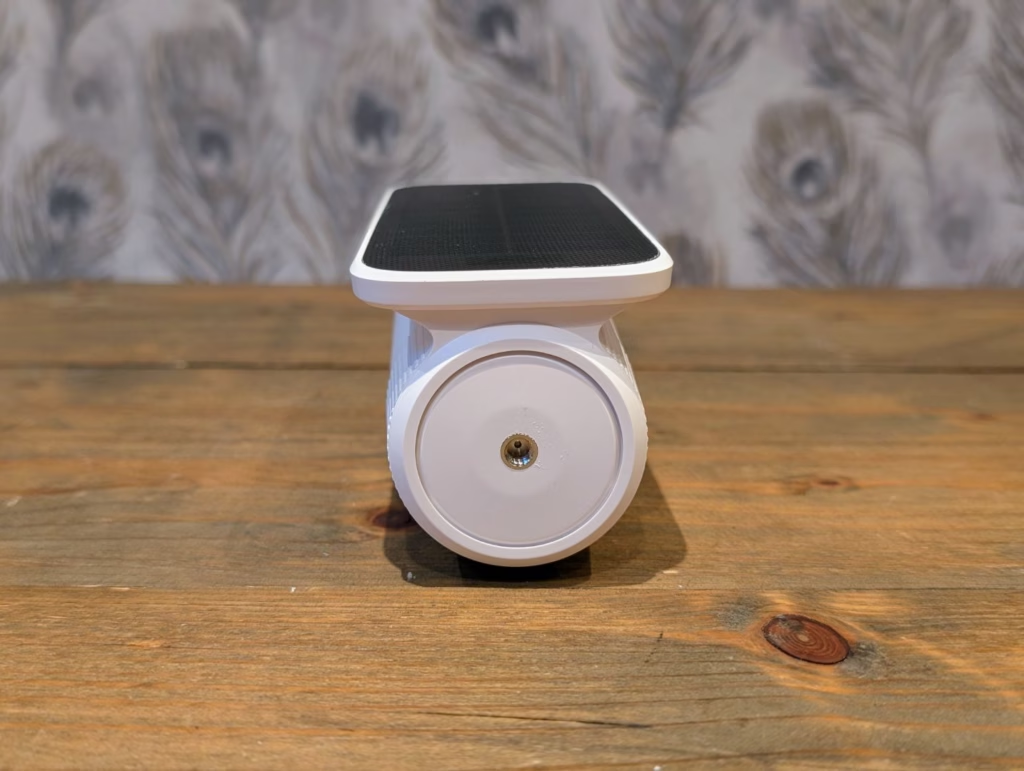
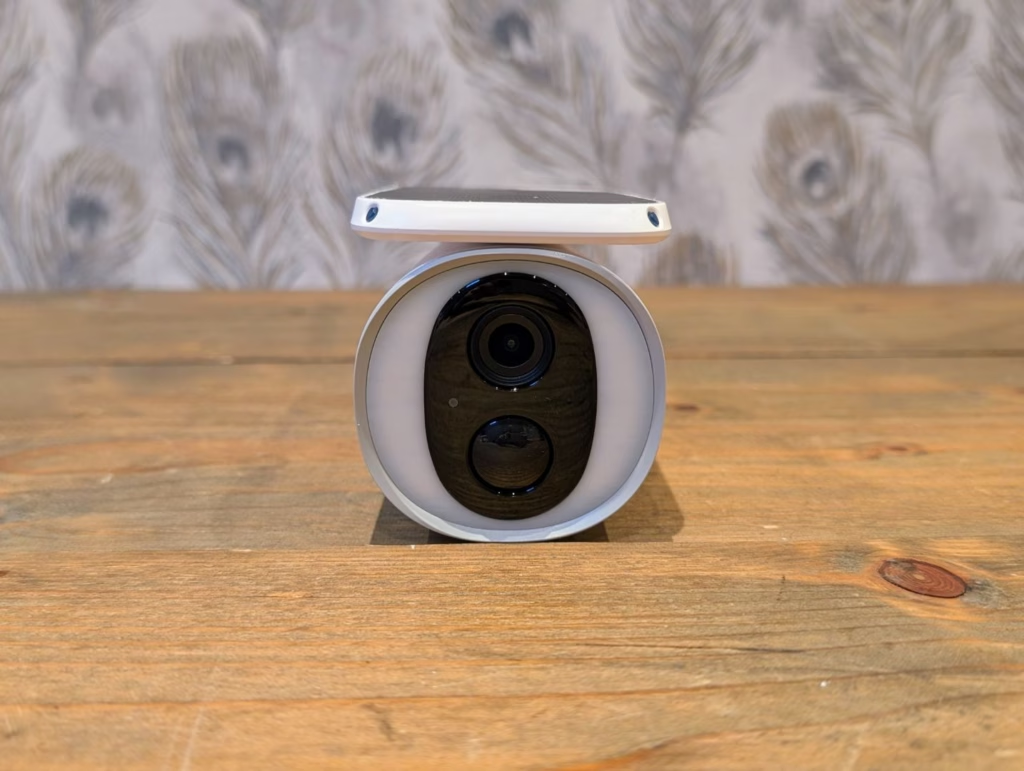
The camera has a notable design with a large solar panel on the top, which is connected to the rear part of the camera, which can rotate to track the sun.
Baseus claims this captures twice the solar energy as other cameras, but I suspect the main advantage is the fact that the solar panel appears to be a lot larger than most competing cameras.
The camera itself is quite large compared to most competing options.
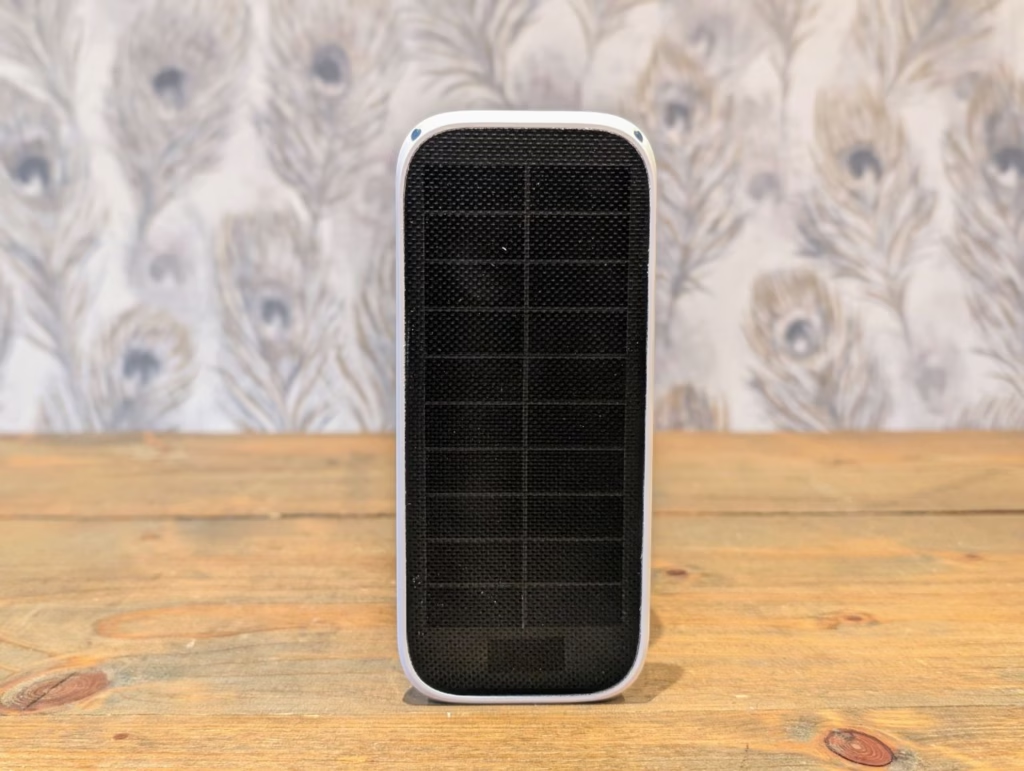
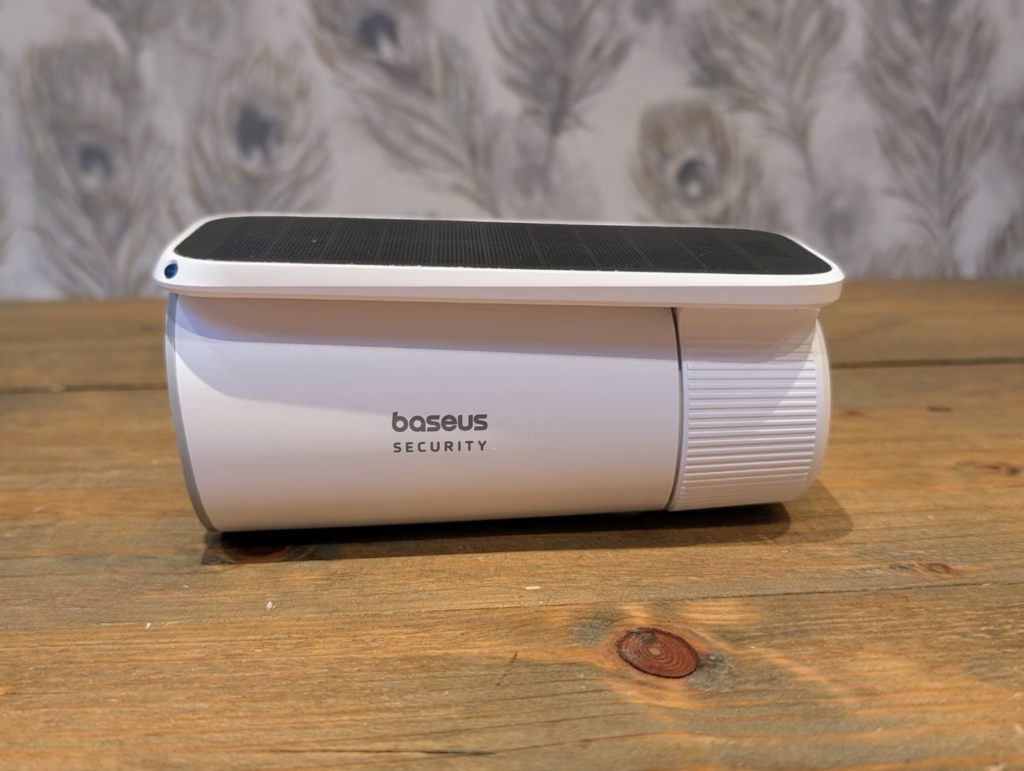
Setup
Initial installation is uncomplicated. Charge the unit fully before mounting; the first charge will take several hours but should rarely be needed again. Once mounted and powered, the app walks through network connection (2.4 GHz Wi-Fi only) and firmware updates.
The camera should be mounted where it receives consistent sunlight. The motorised panel will attempt to track the sun even in partly cloudy conditions, but shaded areas will limit its potential. Wi-Fi signal strength should be checked prior to finalising installation, as poor connectivity may delay notifications or reduce video quality.
Baseus Security App Settings
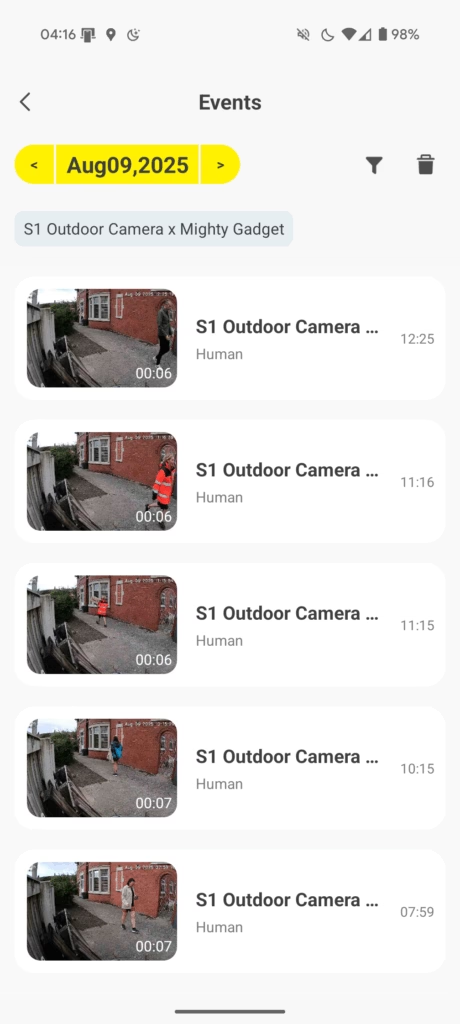
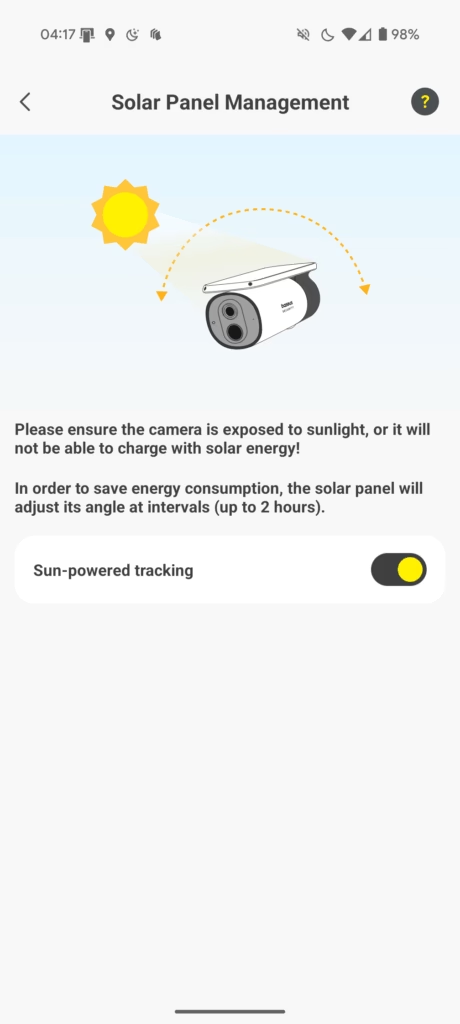
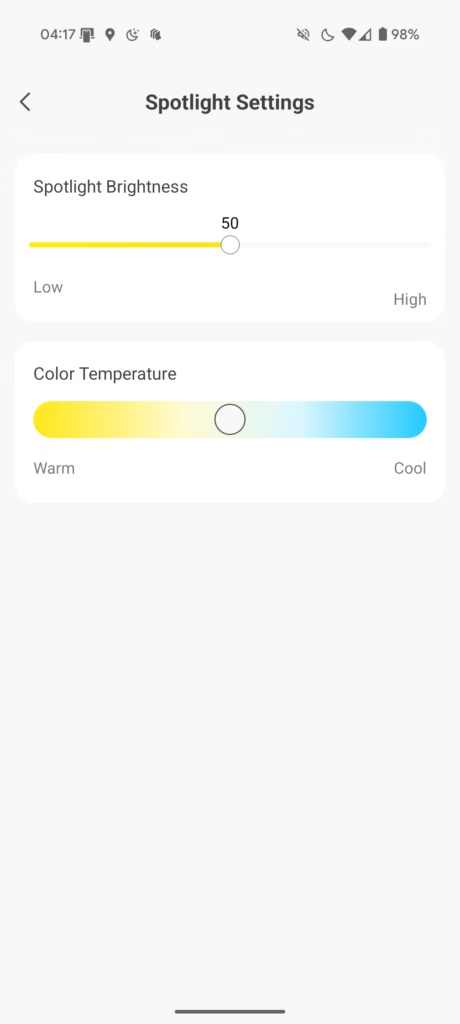
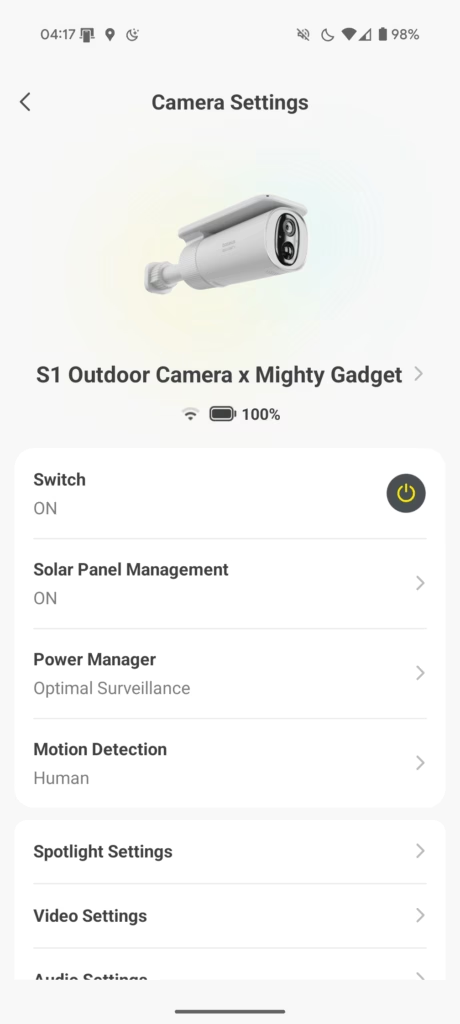
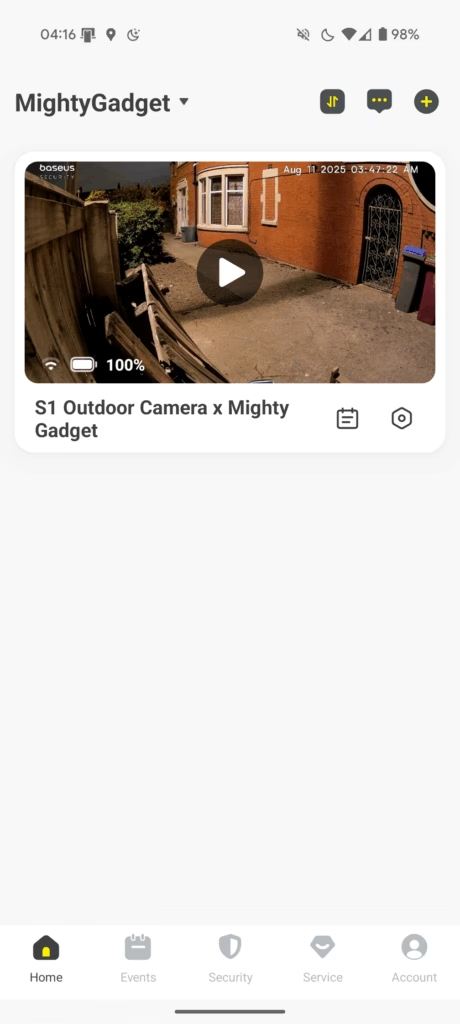
The app interface is refreshingly clean. From the main screen, users can access live view, trigger recording manually, enable or disable audio, use the spotlight, or sound the integrated siren. A full-screen mode is available to aid with detailed inspection.
Settings menus allow for:
- Tuning activity and ignore zones for tailored motion alerts.
- Controlling solar panel behaviour (auto, manual, calibration options).
- Adjusting power consumption modes (optimal battery life or maximum surveillance).
- Choosing night vision mode (colour via spotlight or classic infrared).
- Managing notification settings, including the option to add event thumbnails.
A timeline tool simplifies the review of recorded events. Downloading clips to a phone for off-device backup is supported, though bulk transfer is not available and automation requires manual intervention.
Motion Detection
In practice, motion detection is generally reliable. The dual system tends to pick up humans effectively while mostly ignoring false alarms from animals and weather. Some minor tweaking of sensitivity may be needed to reduce unnecessary alerts for heavily trafficked public areas or if installed near moving tree branches.
Customisable zones are particularly useful for tailoring alerts to property entrances while ignoring irrelevant background activity. Motion-activated spotlights can be enabled or disabled depending on the owner’s requirements — useful either as a deterrent or to remain inconspicuous.
Motion-triggered recording is swift, with clip lengths ranging from 20 seconds up to two minutes, adjustable according to power management preferences.
While this had the ability to detect humans over general motion, it lacks any other advanced object detection. There is no pet, car, package detection, nor facial recognition. This is somewhat expected considering the price of this camera.
Day Time Video Quality
Day scenes captured by the S1 are generally crisp, with respectable dynamic range. Faces and objects are sufficiently clear to recognise at moderate distance, provided lighting is reasonable. Minor distortion occurs at the widest part of the field, but this is common to nearly all ultra-wide home security cameras.
While fixed focus lenses are not ideal for reading small text at a distance, they perform adequately for most typical surveillance requirements such as deliveries, visitor identification, or monitoring driveways. Saturation and contrast appear natural, without over processed colours.
Night Time Video Quality
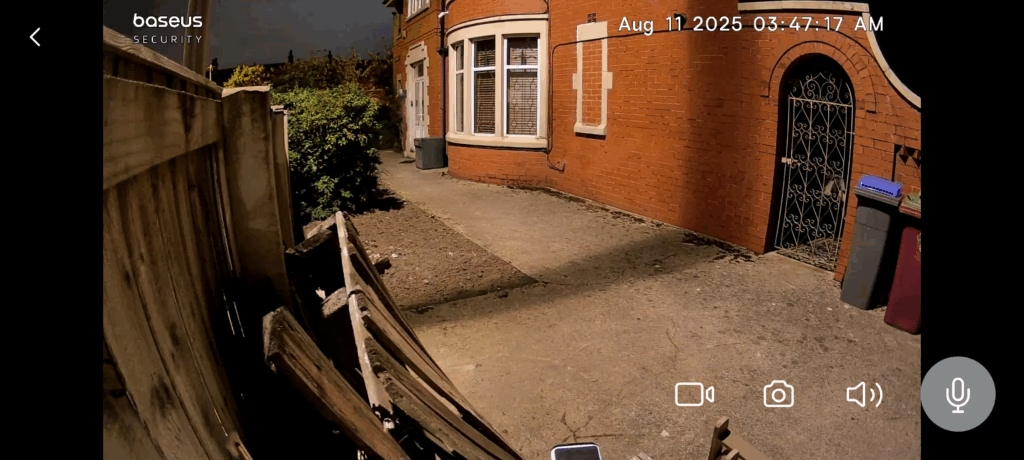
Performance at night is slightly above average for its price range. The integrated 400-lumen LED provides strong illumination up to eight metres, keeping most of a typical front garden or driveway well lit. Colour night vision is advantageous for identifying clothing colours or car paintwork, though it is more intrusive than infrared and may not suit all placement scenarios.
Switching to classic infrared mode mutes the colours but extends visibility slightly further. Footage in both modes remains free of pronounced artefacts. The integrated app allows users to switch between night vision modes or let the camera decide automatically.
Battery Life
With the rotating solar panel deployed in an unobstructed, sunny position, battery performance is excellent.
In my situation, I opted not to charge the camera fully before use, with it being at 78% when I mounted the camera.
Two days later, the battery was at 96%. Granted, it is summer at the moment, so more sun exposure, but I live in the North of the UK, and the weather has been inclement with plenty of rainy and cloudy days.
In comparison, I installed the S1 Lite on a flat surface near the S1, and during this time, the battery reduced very slightly.
I have not had this long enough to confirm how well it will do during the winter months, but I am starting to think that having a solar panel is essential on battery-powered cameras, as it makes such a big difference to the battery life, and I am terrible at remembering to charge my cameras.
Price and Alternative Options
| Preview | Product | Rating | Price | |
|---|---|---|---|---|

| Baseus S1 Security Camera Outdoor Wireless with Auto Tilt... | Buy on Amazon |
The RRP of the Baseus S1 is £100, but at the time of writing, it was discounted to £80 with a further 25% off available, taking it to a reasonable £60.
The Pro model is much more expensive, but you get two cameras and a base station. This has an RRP of £300 but there was a £45 discount available,
The Baseus S1 has an RRP of £80, but there was a £30 off voucher and a 38% discount available at the time of writing. However, when I tested using both, Amazon only applied the largest discount, which was the 38% discount, which equalled £30.39, taking it down to £49.59.
It is also worth noting that the Baseus S2 looks like it is about to launch. This is listed on the Baseus website but links to a 404 page.
For alternative brands, Eufy is the obvious competitor. The SoloCam S230 is a 2K camera, a solar panel, and colour night vision available for £150.
The SoloCam S220 is a better alternative, being a 2K camera with a solar panel and 2K resolution which is available for £70
Overall
The Baseus S1 is a good camera for those on a budget. You can’t criticise it too much at the £60 price point, and you could argue that it is a better choice than the Eufy SoloCam S220 due to the rotating solar panel.
I am still a little bit sceptical about how much difference the rotating solar panel makes, but it does appear to perform much better than the S1 Lite.
Regardless, the combination of the solar panel, no subscription fees, and low price point makes this very appealing.
Additionally, with discounts, this is only £10 more than the S1 Lite, which I think is well worth it considering the improved battery life.
Baseus S1 Outdoor Security Camera Review
Summary
The Baseus S1 Outdoor Security Camera offers strong value for money, especially when discounted to around £60. Its standout feature is the motorised auto-tilt solar panel, which genuinely enhances battery life compared to fixed-panel alternatives. Video quality is solid during both day and night, aided by a 2K resolution and powerful spotlight for colour night vision. While audio performance and motion detection are decent, the lack of expandable storage and more advanced detection features (such as vehicle or package recognition) are limitations. Still, for a low-cost, subscription-free camera, the S1 is an excellent choice for basic home surveillance.
Overall
90%-
Overall - 90%90%
Pros
Excellent battery performance
No subscription fees
Good day and night footage
Solid weatherproofing
Affordable price
Cons
No expandable storage
Lacks advanced detection features
No 5 GHz Wi-Fi
Bulky design
Last update on 2026-03-02 / Affiliate links / Images from Amazon Product Advertising API

